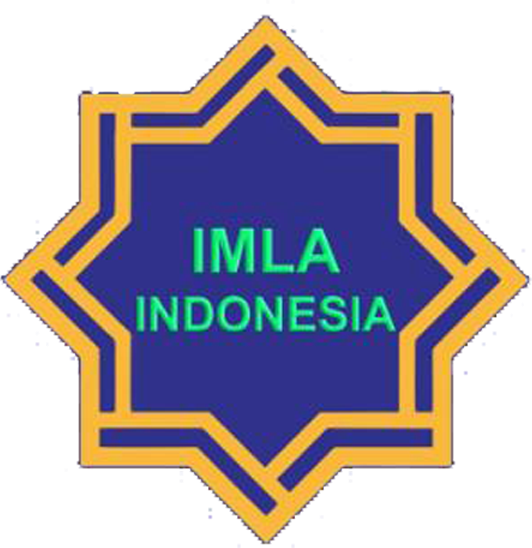Students’ Perception in Using Portfolios of Arabic Linguistics Course for Independent Learning
Abstract
Keywords
Full Text:
PDFReferences
Afifah, N., Sunarto, S., Fauzi, M. F., Anindiati, I., & Nurdianto, T. (2020). The implementation of mimicry memorization method for novice students in learning Arabic mufradat. Jurnal Al Bayan: Jurnal Jurusan Pendidikan Bahasa Arab, 12(2), 263-280. https://doi.org/10.24042/albayan.v12i2.5953
Arifin, Z. (2011). Evaluasi pembelajaran : Prinsip, teknik, prosedur. Rosdakarya.
Bahruddin, U. (2021). The quality improvement of interaction indicators in Arabic language learning for higher education. Izdihar : Journal of Arabic Language Teaching, Linguistics, and Literature. 4(1). https://doi.org/10.22219/jiz.v4i1.15919
Chairunisa, E. D. (2018). Penilaian portofolio dalam meningkatkan kemampuan self-assessment mahasiswa. Kalpataru: Jurnal Sejarah dan Pembelajaran Sejarah, 4(1), 83-88. http://dx.doi.org/10.31851/kalpataru.v4i1.2442
Fitriliza, F., & Fahmi, A. K. (2017). Peningkatan penguasaan kosakata bahasa Arab Melalui metode contoh morfologi. Jurnal Pendidikan Islam, 8(2), 183-204. https://journal.uhamka.ac.id/index.php/jpi/article/view/799
Hidayati, N. (2020). Designing the Arabic crossword puzzles for the first, second, and third grade of the “Mambaul Ulum” Islamic Elementary School Malang. 4(2). http://dx.doi.org/10.17977/um056v4i2p245-258
Irhamni, I., Khasairi, M., & Ahsanuddin, M. (2020). Developing Nahwu learning model based on “translate self-review” (TSR). Al-Arabi: Journal of Teaching Arabic as a Foreign Language, 4(1), 1-18. http://dx.doi.org/10.17977/um056v4i1p1-18
Lubis, S., Hasruddin, H., & Mahmud, M. (2016). Efektivitas penggunaan portofolio pada perkuliahan mikrobiologi terhadap kemandirian dan hasil belajar mahasiswa. Jurnal Pendidikan Biologi, 6(1), 564–569. https://doi.org/10.24114/jpb.v6i1.4323
Mubarak, M. R., Wahdah, N., Audina, N. A., Hamidah, H., & Ilmiani, A. M. (2021). Factors influencing motivation in online Arabic learning of Indonesian older man. Izdihar: Journal of Arabic Language Teaching, Linguistics, and Literature, 4(1), 15-26.
Marselina, K. T., & Kristiantari, M. R. (2019). Pengaruh pendekatan pembelajaran Matematika realistik berbasis portofolio terhadap kompetensi pengetahuan Matematika. Journal of Education Technology, 3(2), 81-87. http://dx.doi.org/10.23887/jet.v3i2.21708
Ismail, M., Hadi, M. N., & Sunaiyah, S. (2017). Metode penugasan dalam pembelajaran PAI. EDUDEENA: Journal of Islamic Religious Education, 1(2), 89-100. https://doi.org/10.30762/ed.v1i2.451
Badi, N., Mahliatussikah, H., Huda, I. S., & Ridwan, N. A. (2020). An analysis of moral values in Kamil Kilani’s “Jelifer Fii Bilaadi Al-‘Amaaliqah” and its application in diraasah natsriyah. Al-Arabi: Journal of Teaching Arabic as a Foreign Language, 4(2), 163-181. http://dx.doi.org/10.17977/um056v4i2p163-181
Nuraeni, Z. (2019). Implementasi penilaian berbasis portofolio untuk meningkatkan aktivitas dan hasil belajar mahasiswa semester 1 pendidikan Matematika STKIP Muhammadiyah Kuningan. Jurnal Gantang, 4(1), 79–85. https://doi.org/10.31629/jg.v4i1.797
Prihartini, Y., Buska, W., Hasnah, N., & Ds, M. R. (2019). Peran dan Tugas Guru dalam Melaksanakan 4 Fungsi Manajemen EMASLIM dalam Pembelajaran di Workshop. Islamika: Jurnal Ilmu-Ilmu Keislaman, 19(02), 79-88. https://doi.org/10.32939/islamika.v19i02.327
Suseni, P., Koyan, I. W., & Sudatha, I. G. W. (2013). Penerapan metode penugasan melalui kegiatan melipat kertas untuk meningkatkan keterampilan motorik halus anak di tk satya ananda banjarasem. Jurnal Pendidikan Anak Usia Dini Undiksha, 1(1). http://dx.doi.org/10.23887/Paud.V1i1.1088
Rohani, & Kesumawati, T. I. (2018). Pengaruh pembelajaran berbasis portofolio dan kemampuan awal terhadap hasil belajar mahasiswa. Al-Athfal: Jurnal Pendidikan Anak, 4(2), 187–198. http://dx.doi.org/10.14421/al-athfal.2018.42-06
Sahono, B., & Ismareni. (2020). Penerapan portofolio untuk meningkatkan kreativitas dan prestasi belajar Biologi. Educate, 5(1), 86–95. https://doi.org/10.32832/educate.v5i1.2020
Salsabila, T. (2021). Studi ihwal kurikulum, guru, dan sarana pembelajaran bahas Arab dalam perspektif perencanaan bahasa. Taqdir, 7(1), 61-75. https://doi.org/10.19109/taqdir.v7i1.7616
Sari, A. K., Muhsin, M., & Rozi, F. (2017). Pengaruh motivasi, sarana prasarana, efikasi diri, dan penyesuaian diri terhadap kemandirian belajar. Economic Education Analysis Journal, 6(3), 923-935. https://journal.unnes.ac.id/sju/index.php/eeaj/article/view/20338
Sudjana, N., & Ibrahim. (2000). Penelitian dan penilaian pendidikan. Sinar Baru Algesindo.
Sukanti, S. (2010) Pemanfaatan penilaian portofolio dalam meningkatkan hasil belajar akuntansi. Jurnal Pendidikan Akuntansi Indonesia, 8(2), 33-40. https://doi.org/10.21831/jpai.v8i2.952
Sundayana, R. (2018). Kaitan antara gaya belajar, kemandirian belajar, dan kemampuan pemecahan masalah siswa SMP dalam pelajaran Matematika. Mosharafa: Jurnal Pendidikan Matematika, 5(2), 75–84. https://doi.org/10.31980/mosharafa.v5i2.262
Sutarna, N. (2016). Penerapan metode penugasan untuk meningkatkan kemampuan memahami peta pada siswa sekolah dasar. Jurnal Geografi Gea, 16(1), 34-43. https://ejournal.upi.edu/index.php/gea/issue/view/466
Tajuddin, S. (2017). Pengembangan model pembelajaran bahasa Arab tingkat sekolah dasar untuk meningkatkan kemampuan berbahasa Arab Siswa. Parameter: Jurnal Pendidikan Universitas Negeri Jakarta, 29(2), 200-215. https://doi.org/10.21009/parameter.292.08
Vandayo, T., & Hilmi, D. (2020). Implementasi pemanfaatan media visual untuk keterampilan berbicara pada pembelajaran bahasa Arab. Tarbiyatuna: Jurnal Pendidikan Ilmiah, 5(2), 217-236. Retrieved from http://ejournal.kopertais4.or.id/mataraman/index.php/tarbiyatuna/article/view/3873
Zamnah, L. N., & Ruswana, A. M. (2018). Penerapan model pembelajaran self-directed learning untuk meningkatkan kemampuan pemahaman matematis mahasiswa. JPMI (Jurnal Pendidikan Matematika Indonesia), 3(2), 52–56. https://doi.org/10.26737/jpmi.v3i2.698
DOI: http://dx.doi.org/10.17977/um056v5i1p81-94
Refbacks
- There are currently no refbacks.
Copyright (c) 2021 Al-Arabi; Nur Faiz Kholidiyah

This work is licensed under a Creative Commons Attribution-NonCommercial 4.0 International License.
AL-ARABI is indexed by:
Editorial Office:
Al-Arabi: Journal of Teaching Arabic as a Foreign Language
Arabic Department, Faculty of Letters, Universitas Negeri Malang (UM)
Jalan Semarang 5, Malang 65145, Indonesia.
Telephone: (0341) 551312 Ext. 239. Fax (0341) 567475.
E-mail: alarabi@um.ac.id

Al-Arabi: Journal of Teaching Arabic as a Foreign Language is licensed under a Creative Commons Attribution 4.0 International License.
Based on a work at http://journal2.um.ac.id/index.php/alarabi/










